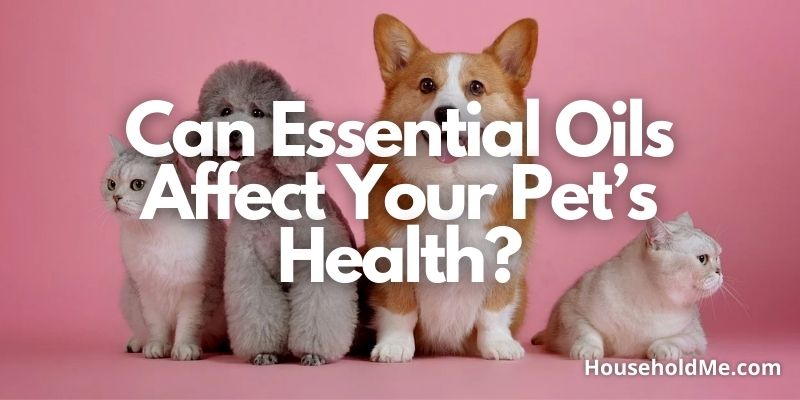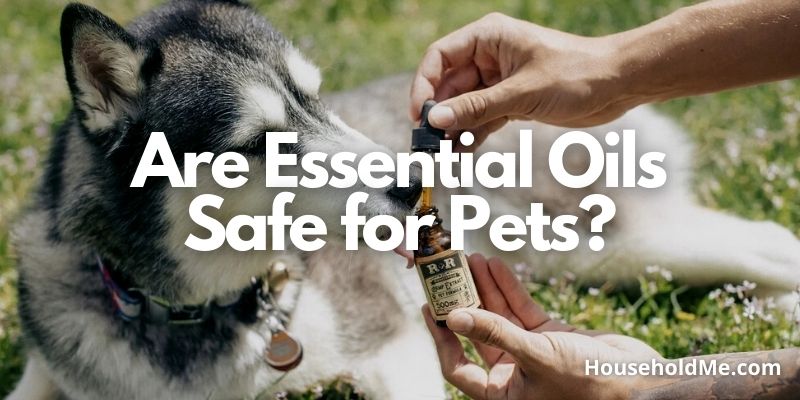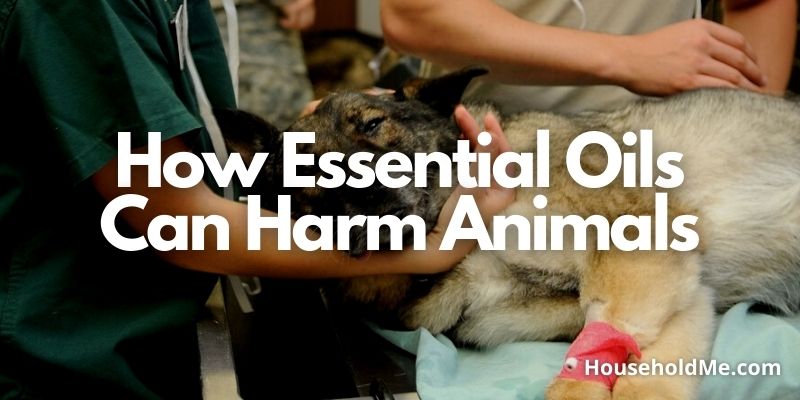Over the last few years, the use of essential oils has grown in popularity. While it is extremely widespread, scientific evidence for the good health impacts is sparse and oftentimes conflicting. This is especially true while addressing the link between essential oils and their effects on pets.

What Are Essential Oils?
Essential oils are a concentrated liquid made up of plant extracts that are used in aromatherapy, alternative medicine, and as household air fresheners. There are many different kinds of essential oils, each with its own set of physical and chemical qualities.
People believe that utilizing “natural” essential oils enhances their health and happiness as well as the health and happiness of their pets. However, the apparent positive effects of essential oils on you (calming sensations, stress reduction, increased energy, and enhanced focus, among other things) may have a severe negative impact on your beloved pet.

Are Essential Oils Safe for Pets?
Many essential oils, including eucalyptus oil, tea tree oil, cinnamon, citrus, peppermint, pine, wintergreen, and ylang-ylang, are toxic to pets. These are dangerous whether applied to the skin, dispersed, or ingested in the event of a spill.

Diffusers that produce a lovely aroma may appear to be safe, but they can be harmful since they employ water vapor to disperse tiny oil droplets into the air. Inhaling diffused oils is known to cause unfavorable respiratory effects in humans and pets when used in a small space and/or for an extended period of time.
It is critical to understand that animals like cats and dogs are significantly more sensitive to scents than we are. What you may consider a modest, fragrant perfume to be can be overwhelming and harmful to an animal.
How Essential Oils Can Harm Animals
Essential oils can be harmful to cats and dogs whether taken internally, applied to the skin, or just inhaled. Exposure can cause severe liver damage, liver failure, convulsions, and even death.

Felines lack specialized enzymes (phenols) that help them to metabolize the different compounds found in essential oils. Phenolic compounds occur naturally in plants and are highly concentrated in essential oils, making the liver the most vulnerable organ to failure.
A dog’s sense of smell is far superior to that of humans – something to keep in mind if you intend to utilize or diffuse essential oils in your home. Putting lavender oil drops on your pet’s bedding may help calm them down, or it may just add to their worry. Oils used inappropriately can potentially cause behavioral changes, adverse central nervous system impacts, and breathing issues.
Essential oils in the air can be consumed or licked off their fur by using essential oils and aromatherapy diffusers, candles, liquid potpourri, and room sprays. If you can smell the oil’s aroma, it means there is oil in the air, which could cause lung irritation.
Final Thoughts
If you live with a pet, it might be safer to avoid using essential oils in your humidifier-diffuser. Although we do not explicitly forbid the use of these oils, we do advise you to proceed with caution. The form, dosage, and mode of administration of essential oils are all important considerations.

